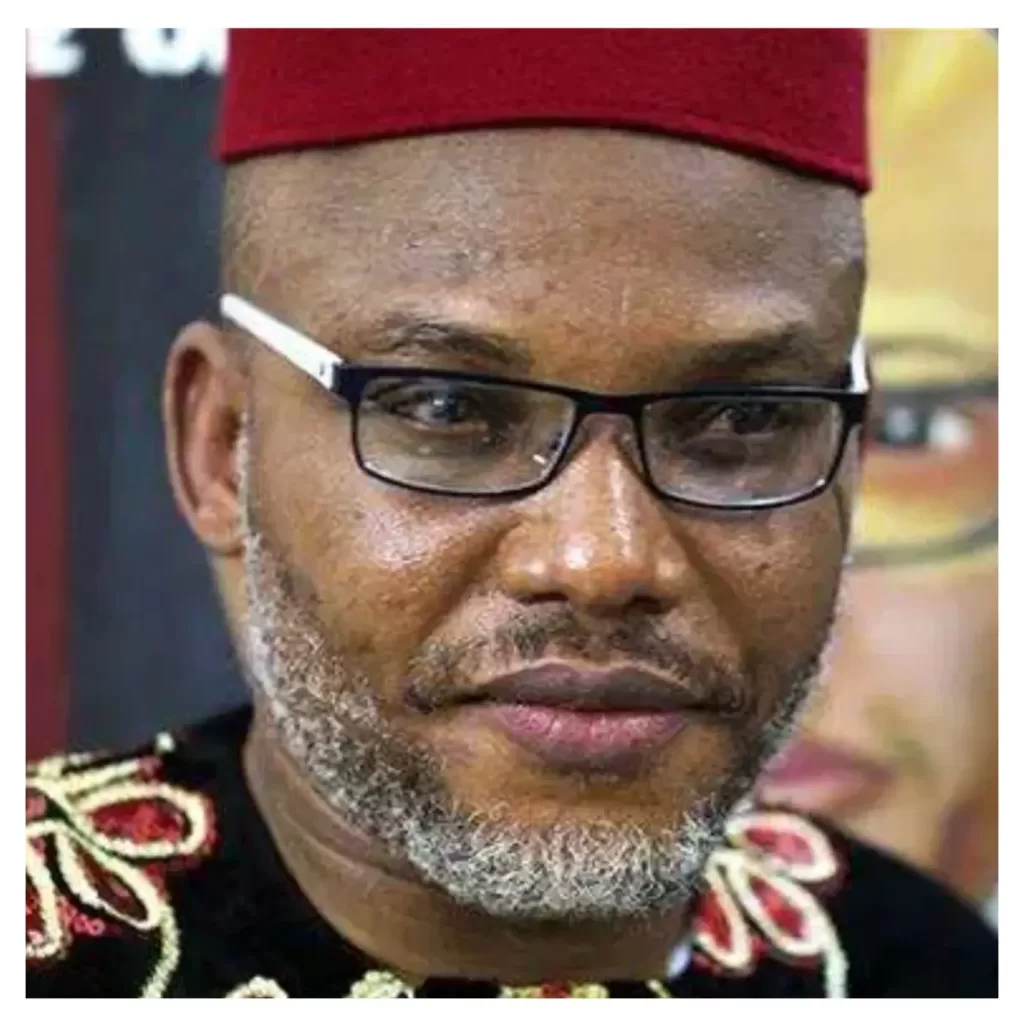
A human rights lawyer, Mr Christopher Chidera, has expressed profound concern over a recent ruling by Justice James Kolawole Omotosho, of the Federal High Court in Abuja on Nnamdi Kanu’s lingering trial.
On Friday that Justice Omotosho, had in a ruling on terrorism charges against Kanu declared that Nnamdi Kanu, the leader of the Indigenous People of Biafra (IPOB), has a case to answer despite glaring inconsistencies in the prosecution’s evidence.
However, Chidera in a media release, stated that the court’s decision departs sharply from established legal principles, prioritising executive interests over justice.
“This decision departs sharply from established legal principles and underscores a troubling trend of prioritising executive interests over justice in Nigeria’s courts,” he said.
The lawyer criticised Justice Omotosho for fixating solely on the charge sheet while disregarding the prosecution’s evidence, which collapsed under cross-examination.
This approach, he argued, defies Supreme Court precedents requiring judges to assess whether prosecution witnesses had been sufficiently discredited.
Chidera also faulted the court’s failure to address the prosecution’s reliance on the repealed Terrorism Prevention (Amendment) Act 2013. “Prosecuting under a defunct statute is not a mere technicality — it renders the entire case a legal nullity,” he emphasised.
“Section 122 of the Evidence Act 2011 obliges courts to take judicial notice of repealed laws. Prosecuting under a defunct statute is not a mere technicality — it renders the entire case a legal nullity.
“This oversight calls into question the court’s jurisdiction and its commitment to the rule of law,” he avowed.
The human rights lawyer further argued that the court’s ruling violates Section 36(11) of the Nigerian Constitution, which protects against self-incrimination. By ruling that Kanu “has a case to answer” despite the absence of credible evidence, the court improperly shifts the burden of proof onto the accused.
“Collectively, these errors reveal a disturbing pattern: the judiciary in Abuja appears more committed to sustaining a politically motivated trial than upholding justice. Courts must serve as impartial arbiters, not as instruments of executive will,” he added.
Chidera, however, called on the Court of Appeal to swiftly review and rectify these egregious legal errors.
He also urges the Nigerian Bar Association (NBA) and National Judicial Council (NJC) to investigate recurring lapses in judicial adherence to law and due process in this case.
Additionally, he calls on the international community to monitor Nigeria’s ongoing violations of fair trial standards under the International Covenant on Civil and Political Rights (ICCPR) and the African Charter on Human and Peoples’ Rights.
The ruling has sparked concerns about the integrity of Nigeria’s judicial system and its commitment to upholding the rule of law.
 Premium News
Premium News